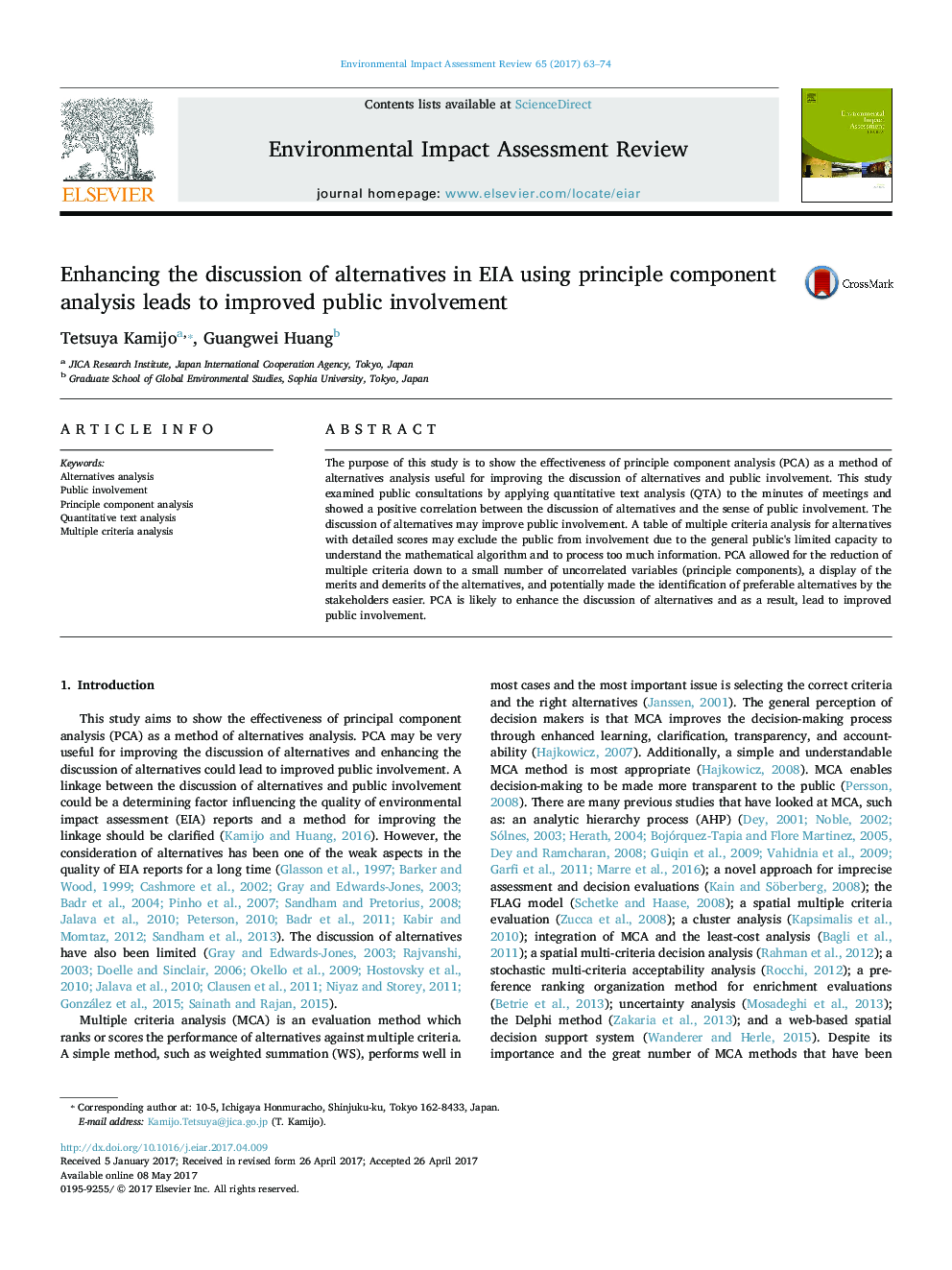| Article ID | Journal | Published Year | Pages | File Type |
|---|---|---|---|---|
| 5115587 | Environmental Impact Assessment Review | 2017 | 12 Pages |
The purpose of this study is to show the effectiveness of principle component analysis (PCA) as a method of alternatives analysis useful for improving the discussion of alternatives and public involvement. This study examined public consultations by applying quantitative text analysis (QTA) to the minutes of meetings and showed a positive correlation between the discussion of alternatives and the sense of public involvement. The discussion of alternatives may improve public involvement. A table of multiple criteria analysis for alternatives with detailed scores may exclude the public from involvement due to the general public's limited capacity to understand the mathematical algorithm and to process too much information. PCA allowed for the reduction of multiple criteria down to a small number of uncorrelated variables (principle components), a display of the merits and demerits of the alternatives, and potentially made the identification of preferable alternatives by the stakeholders easier. PCA is likely to enhance the discussion of alternatives and as a result, lead to improved public involvement.
